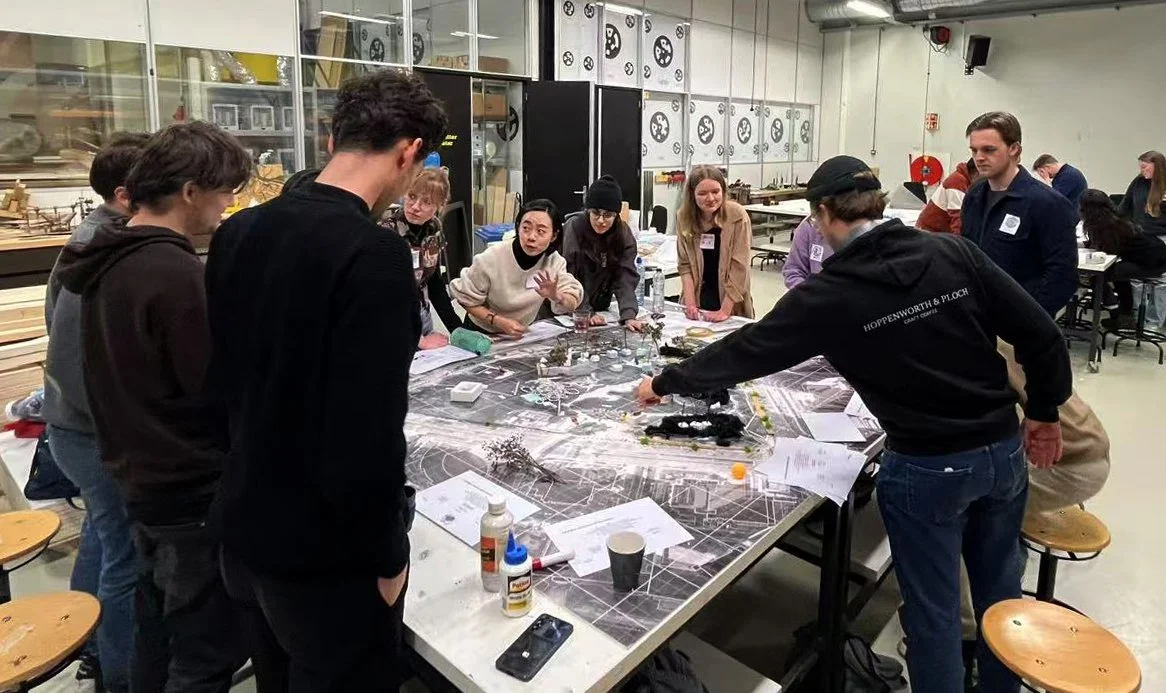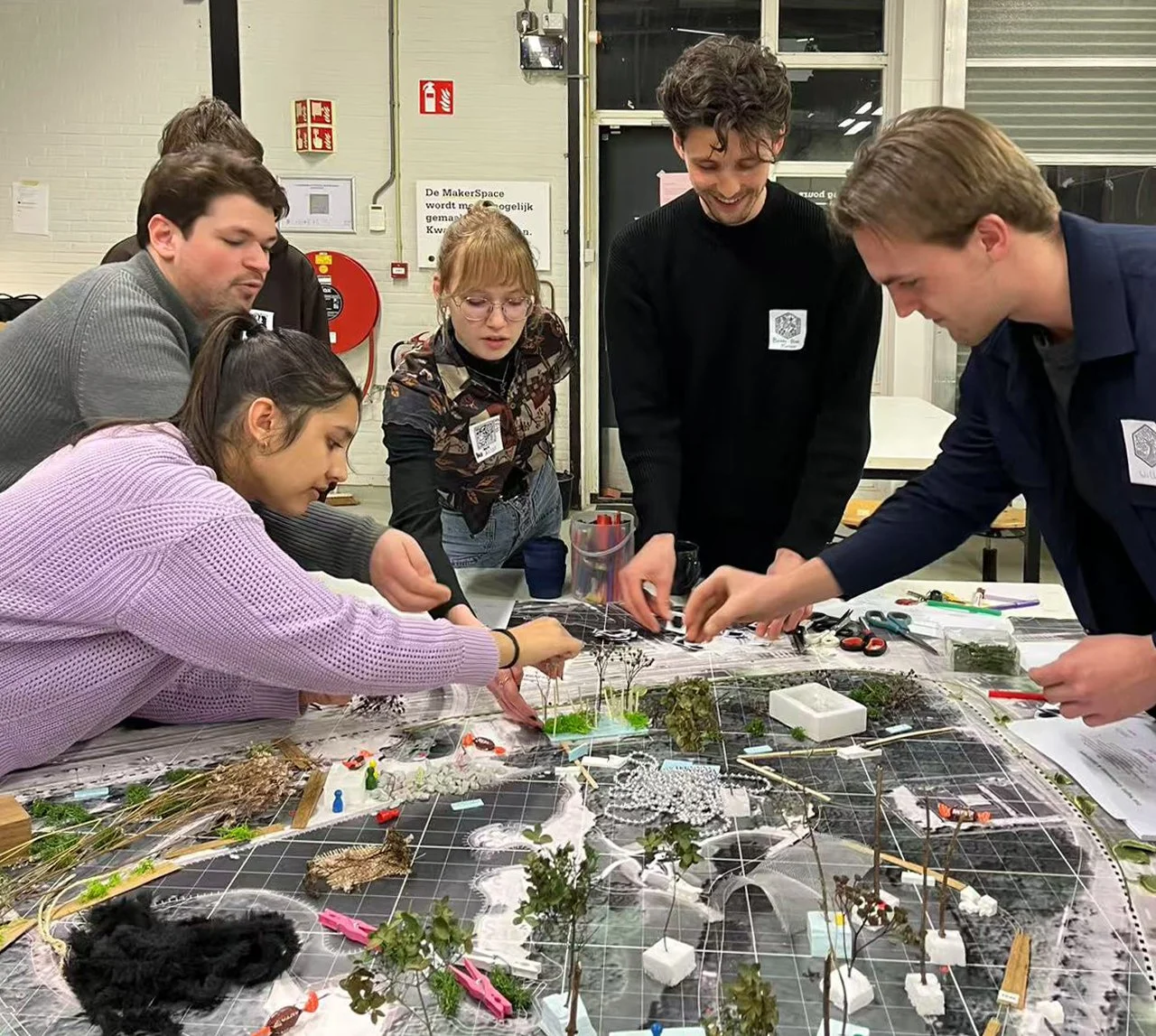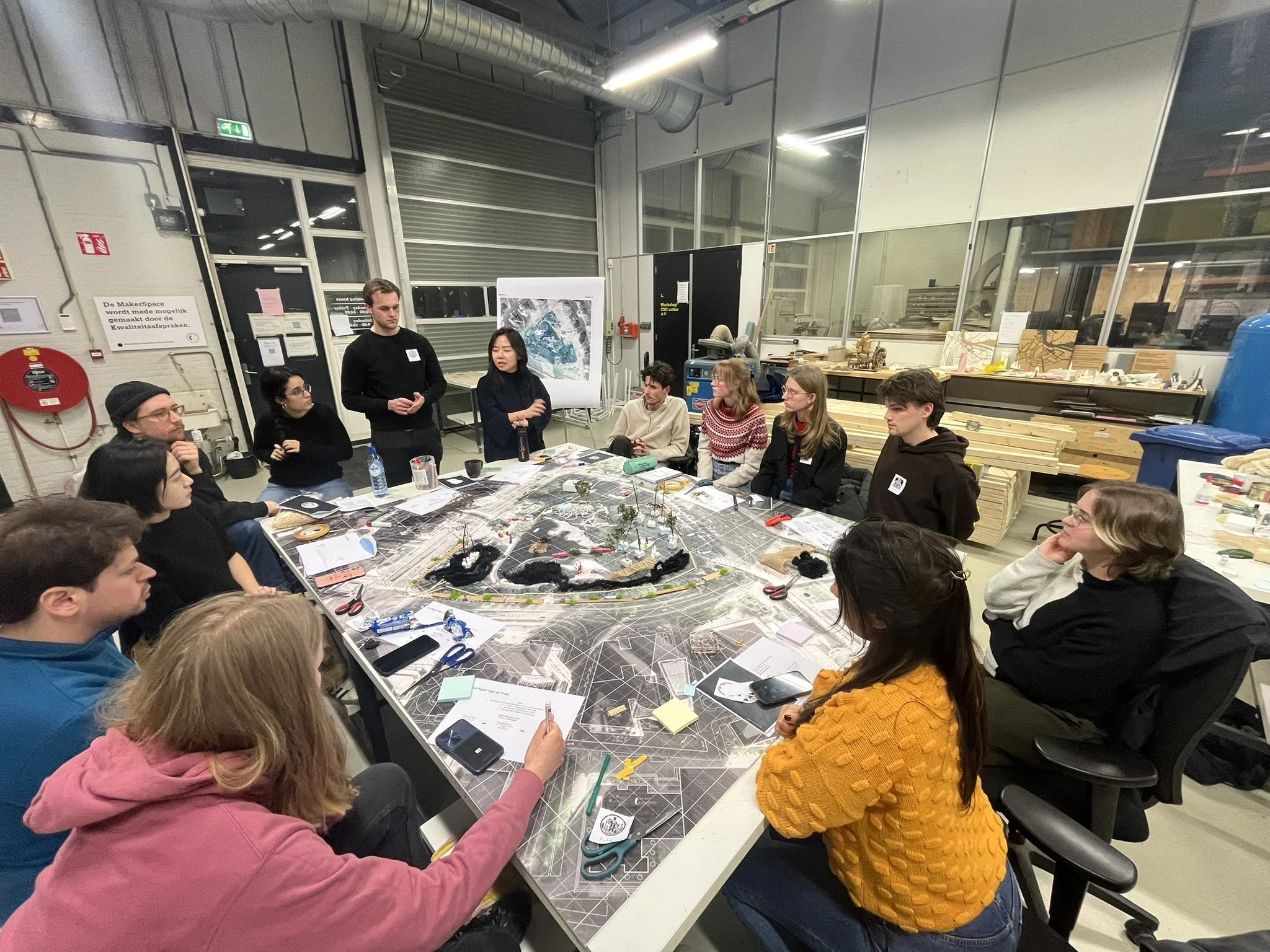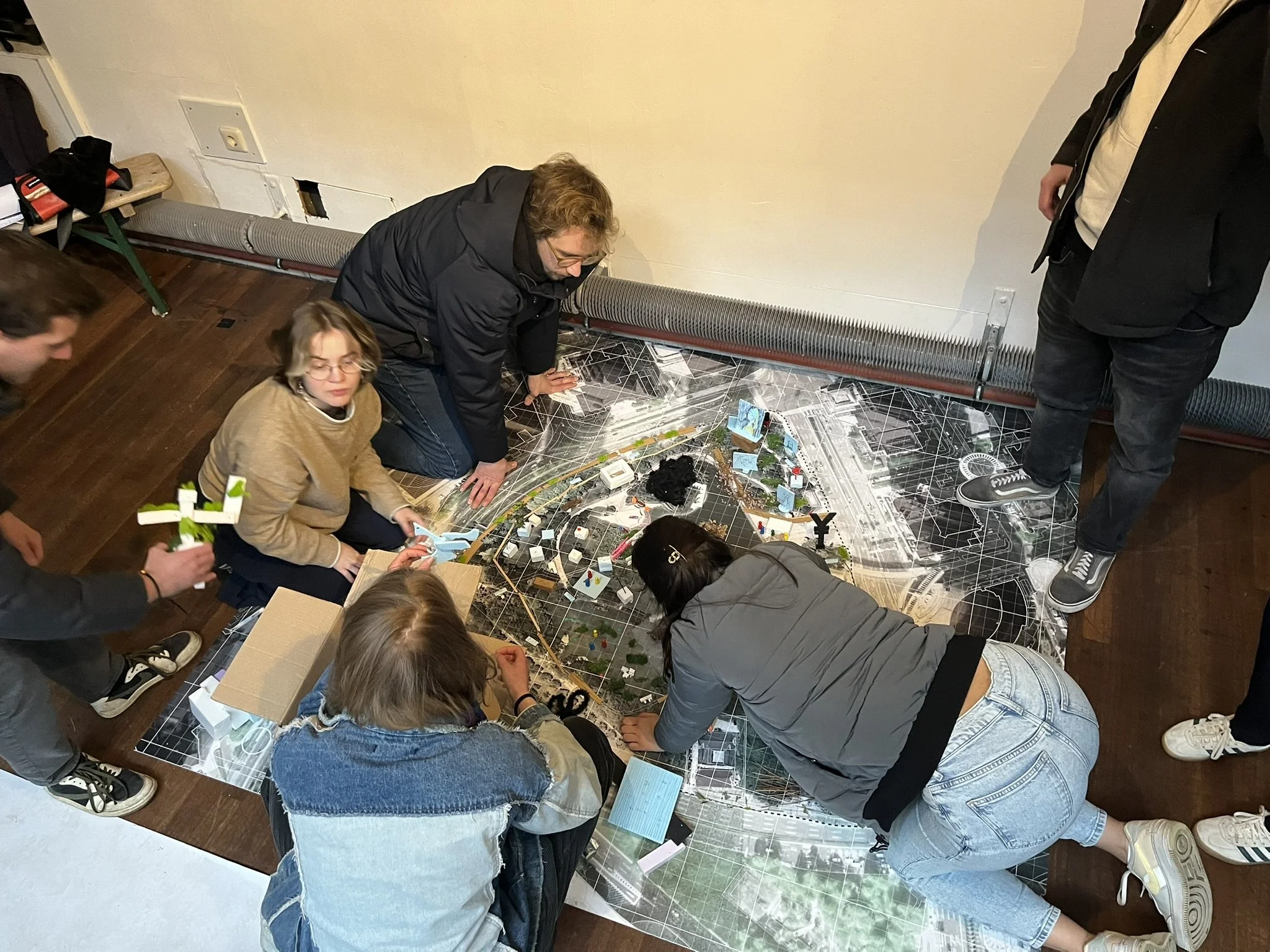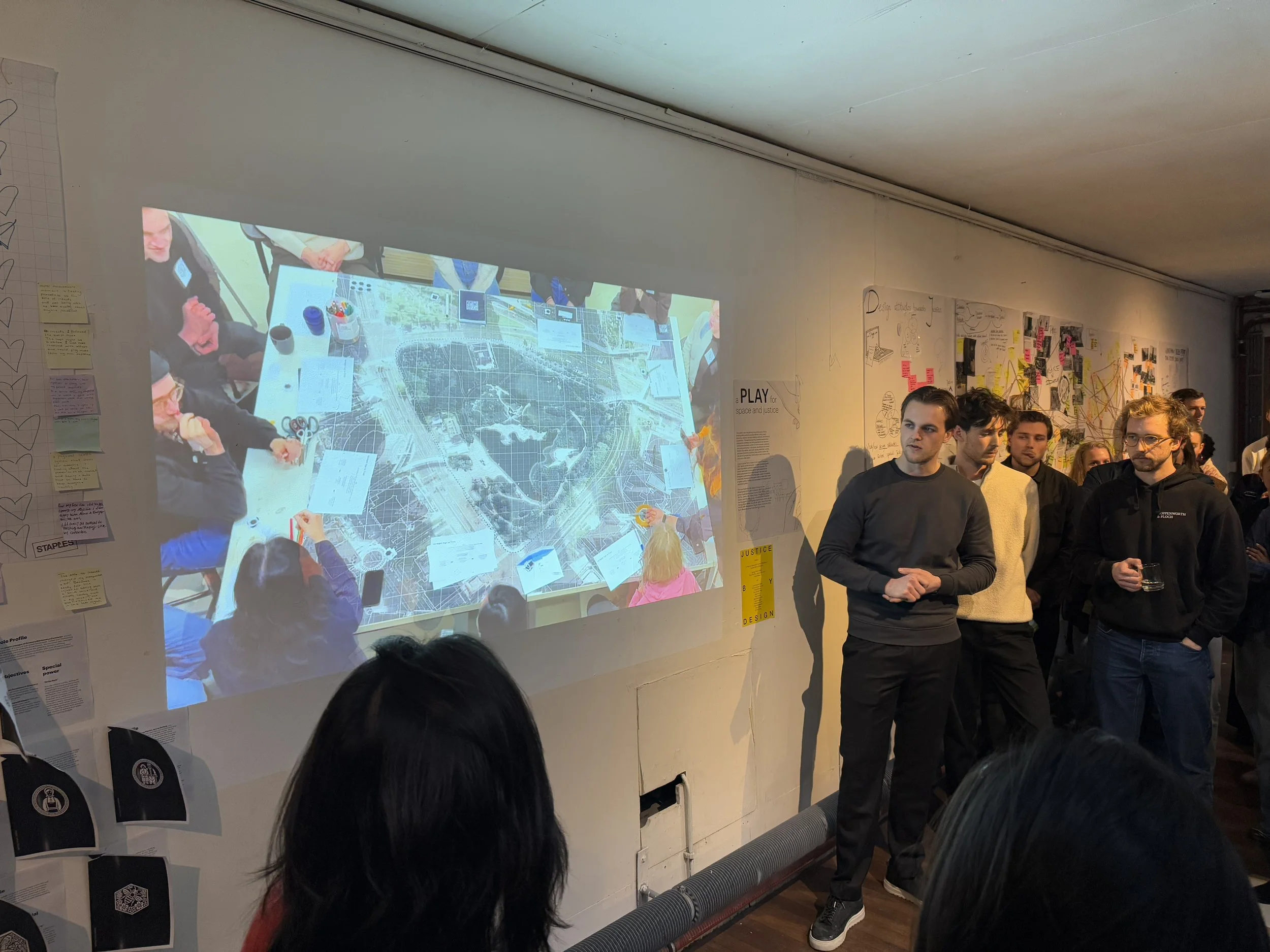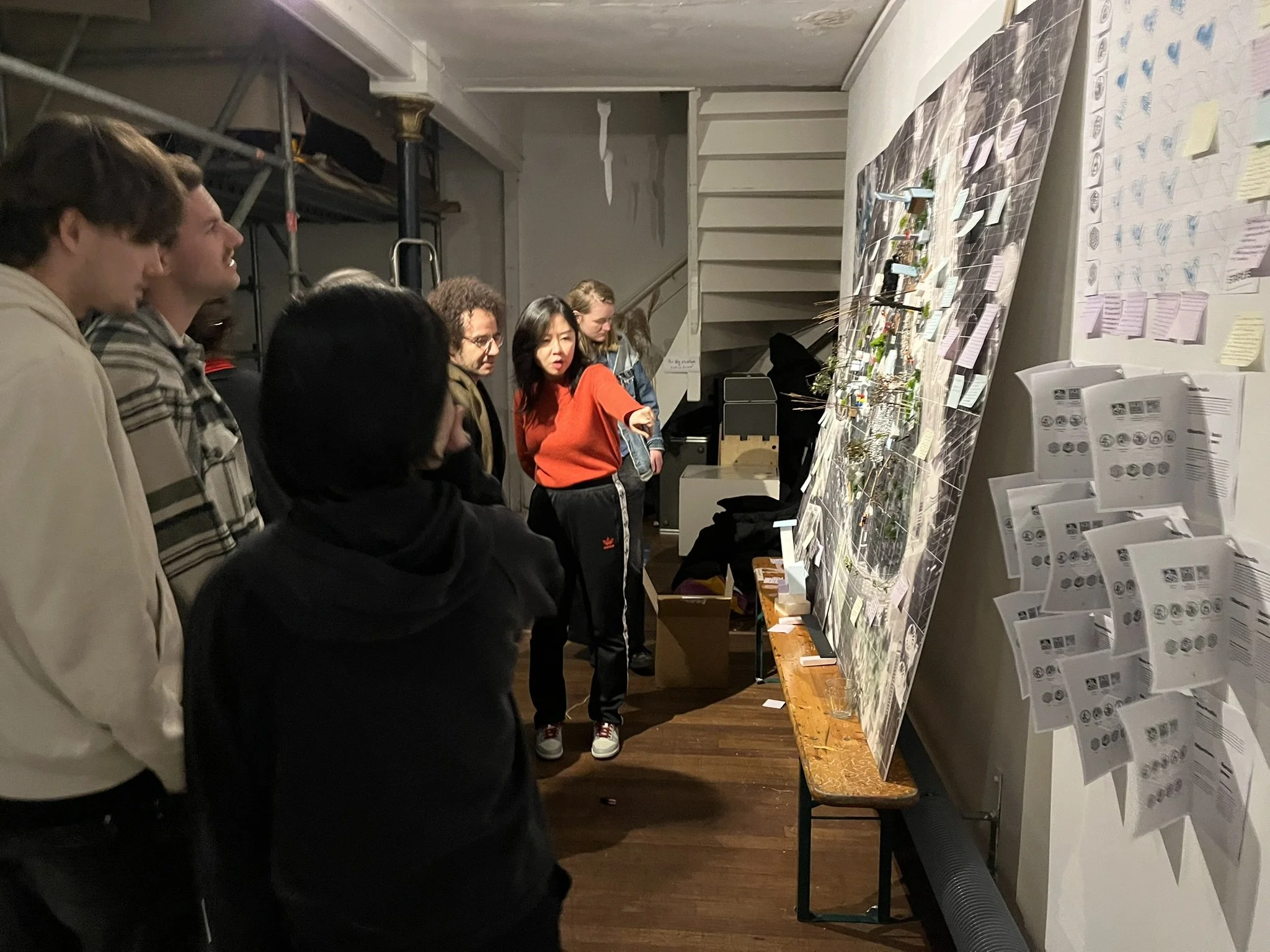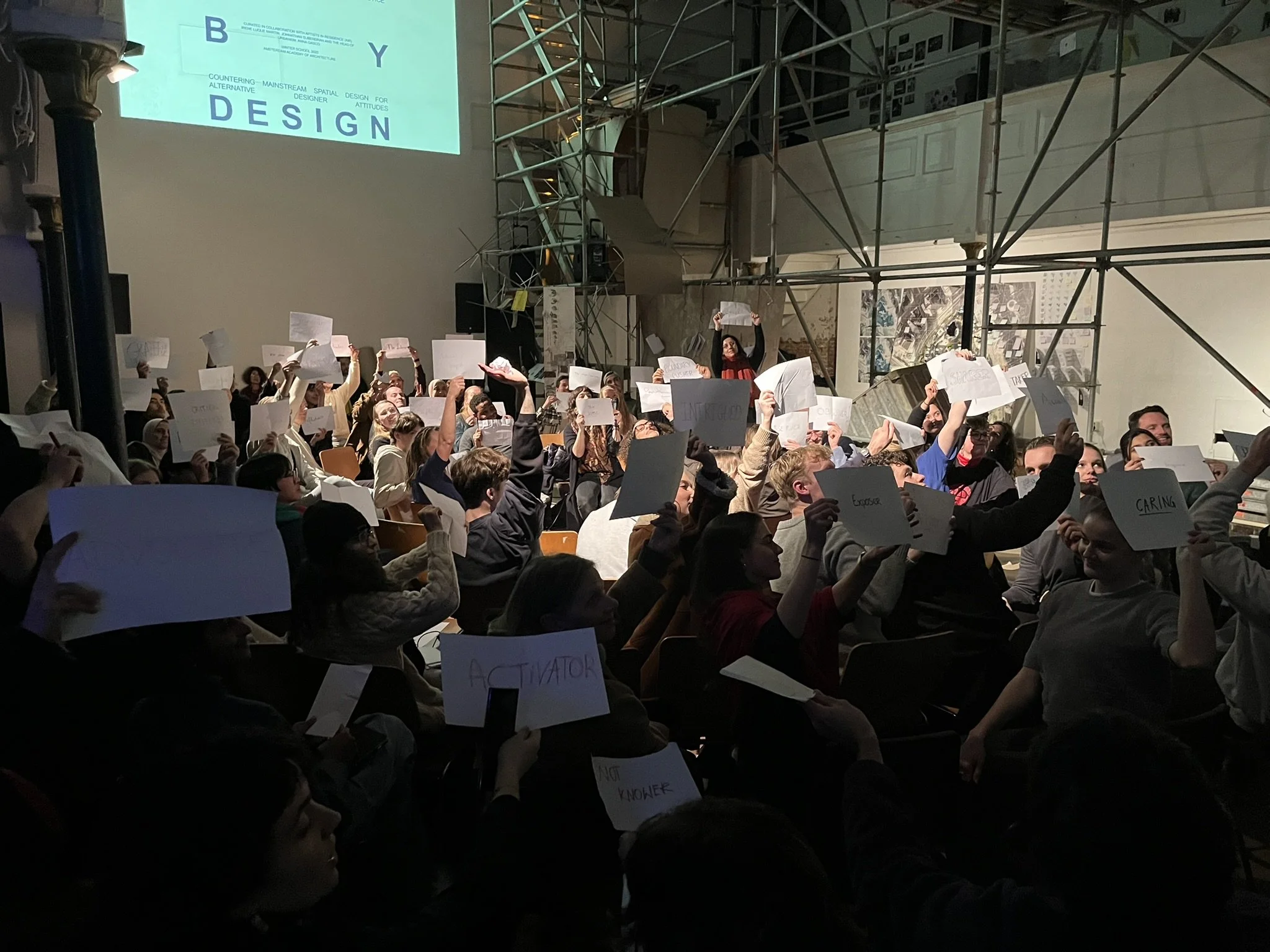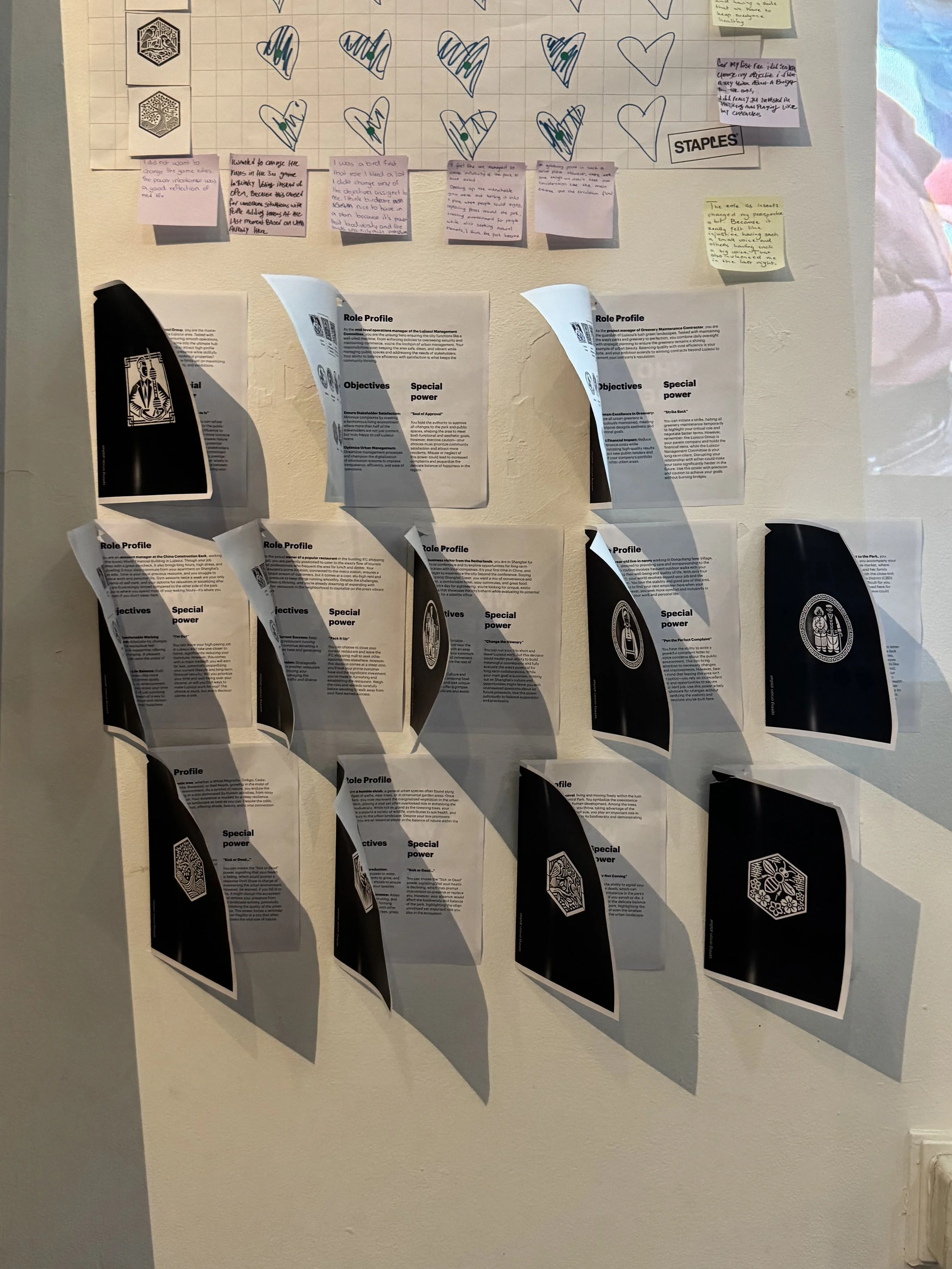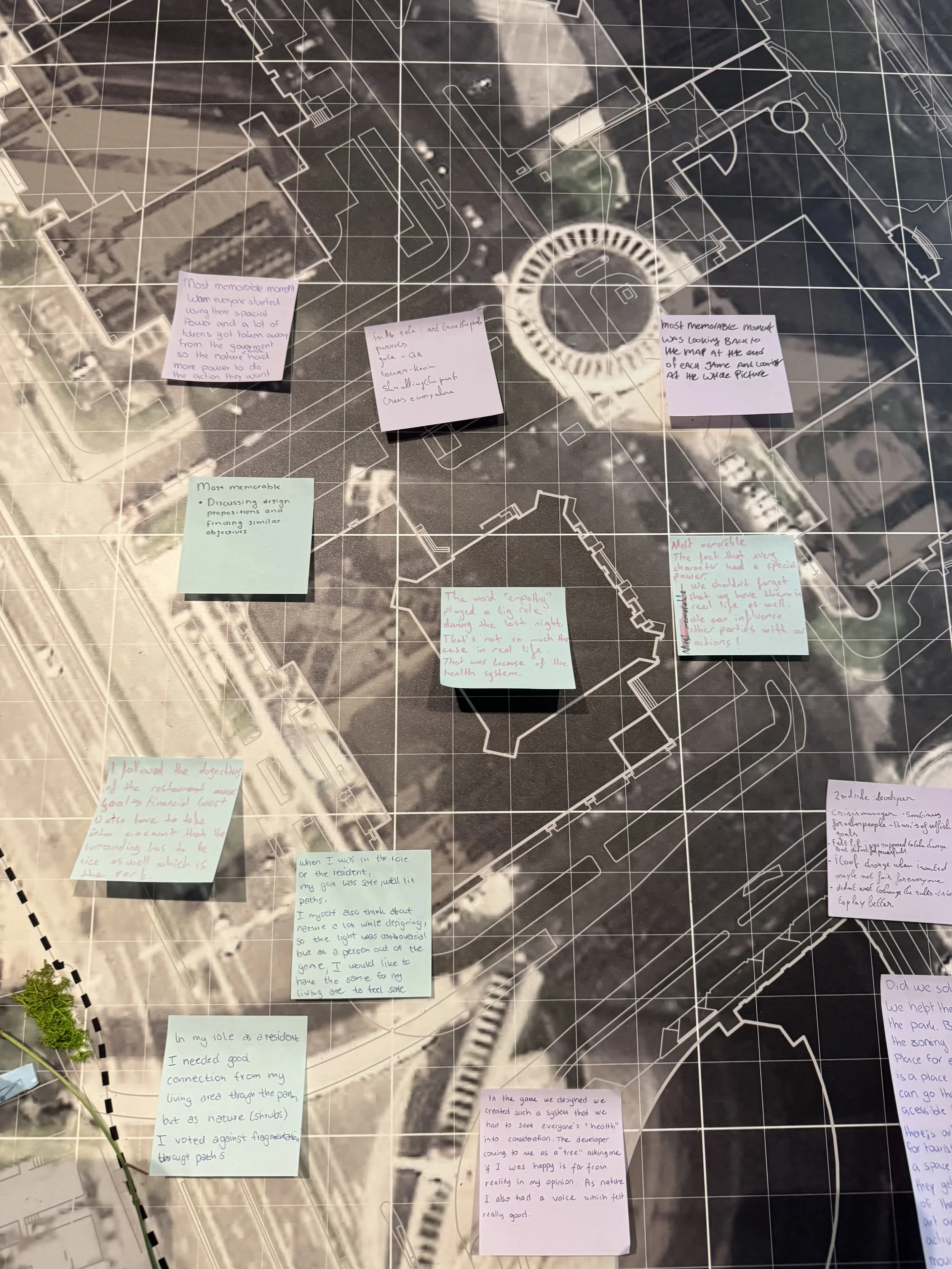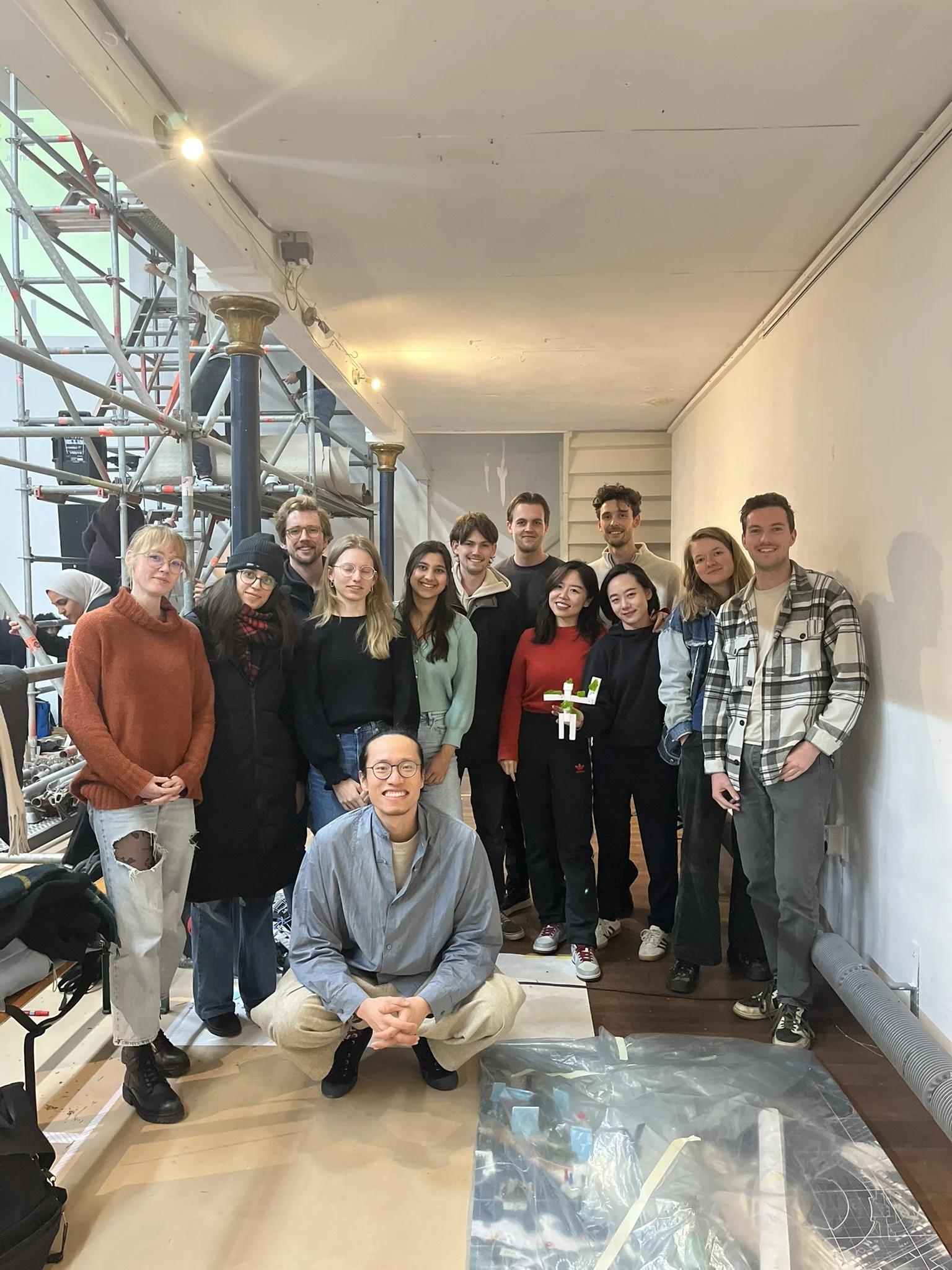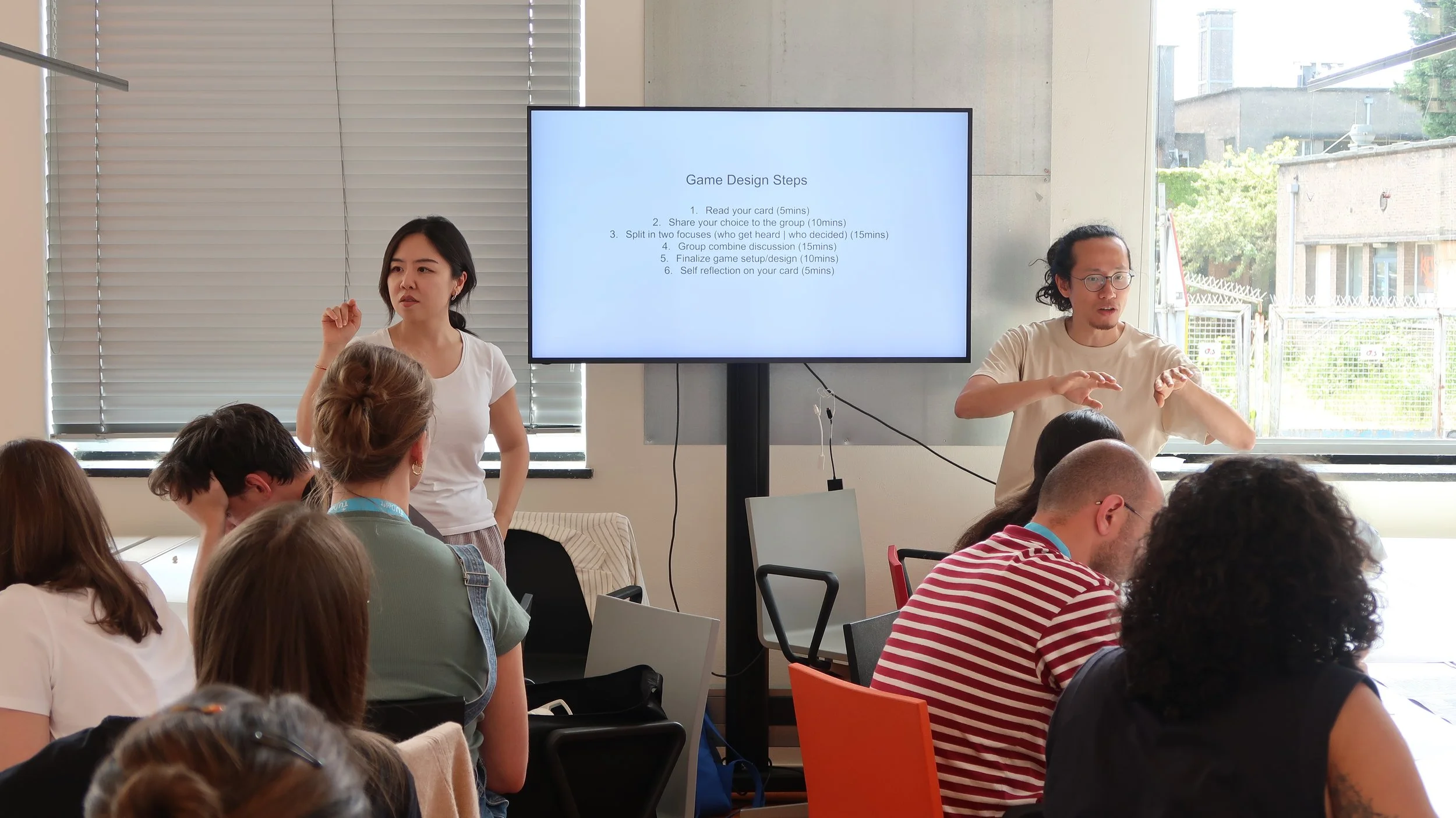A Play for Space and Justice
This game invites you to explore procedural justice through play, where ideals meet reality and we co-create more just spaces together.
The Method
This game invited 12 students to explore and reflect on procedural justice in spatial planning and design through city-gaming. Using Lujiazui Central Park as the arena, the studio employed role-play and game mechanics to shift the approach from top-down design to bottom-up processes. The gaming method ensured accessibility in the participatory process and provided a flexible framework that allowed quick adaptations to support more inclusive, responsive and just urban outcomes.
City-gaming as the method
The Game
Lujiazui Central Park, located in the heart of Shanghai’s iconic Central Business District, presents a striking contrast between its manicured green landscapes and the surrounding skyline that reflects China's global economic ambitions. Despite its appearance, the park’s gated access, constant surveillance, and exclusive programming reveal a governance model focused on control and political authority rather than equitable public access.
Gaming context: Lujiazui Central Park
This studio responded to that imbalance by transforming the park into an experimental space for rethinking spatial justice through the eyes of diverse actors. Twelve players represented key stakeholders, including governance bodies, citizens and visitors, and nature. The studio explored how participatory processes can contribute to spatial transformations in governance, social equity, and environmental sustainability.
12 roles
During the first two nights of the game workshop, students played using different rule sets. By observing how these rules shaped both process and spatial outcomes, they reflected on just and injust elements in policy-making, design procedures, and land management. Based on these insights, the students revised the game mechanics, which formed the foundation for the sessions held over the following four nights.
4 nights play for justice
This project is part of a broader investigation into justice in design and participatory urban practices. Although developed through a design studio, it aims to engage a wider audience including designers, policymakers, and the public in rethinking governance, access, and equity in shared spaces. For more information, visuals, or collaboration inquiries, please contact Spring Onion Atelier at info@springonionatelier.com.
Game Nights in Motion
Facts & Credits
Location: Makerspace, Amsterdam
Program & Size: Winter School, with 12 students
Time: Janurary 2025
Game Credit: Spring Onion Atelier
Teaching Team: Chun Hoi Hui, Jammy Zhu, Yang Zhang
Students: Lara-Sophie Dejon, Kevin van den Heuvel, Daniel Simon, Iris van der Veen, Dave Pronk, Kian Haring, Belle Berrenbroek, Noyan Azgun, Evania ten Hove, Daan Mengerink, Arya Yasar, and Anna Koning
Justice by Design Project Initiator: Irene Luque Martín, Johnathan Subendran
Key Partner: Amsterdam Academy of Architecture










